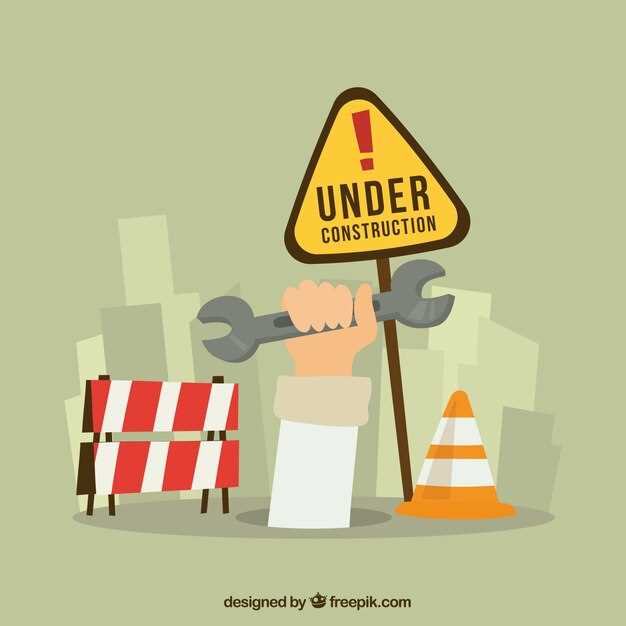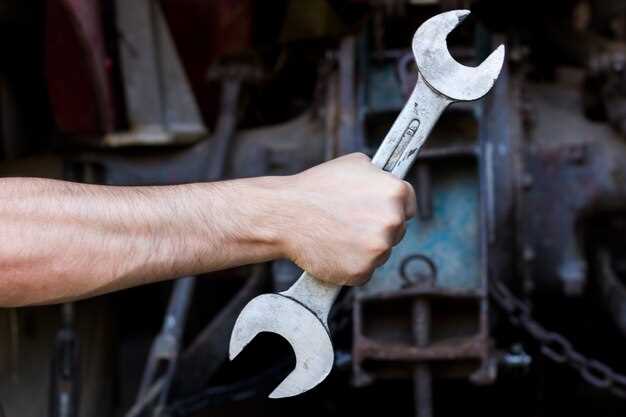
As a vital component of any vehicle, the transmission plays a crucial role in ensuring smooth and efficient operation of your car. It is responsible for transferring power from the engine to the wheels, allowing for optimal performance while driving. However, over time, various factors can lead to significant wear and tear on this essential mechanism, resulting in potential issues that may require a complete rebuild.
Recognizing the early signs of transmission trouble can save you from more extensive damage and costly repairs down the line. Symptoms such as unusual noises, difficulty shifting gears, or fluid leaks can indicate that your transmission is not functioning correctly. Being aware of these warning signs is crucial for any car owner, as it enables you to take timely action and seek professional help before the situation escalates.
In this article, we will delve into the most common indicators that suggest your transmission may need a rebuild. By understanding these signs, you can maintain the longevity of your vehicle and ensure its reliability on the road. Let’s explore these essential clues that indicate it’s time to give your transmission the attention it deserves.
Unusual Noises Indicating Transmission Issues
When driving your car, unusual noises coming from the transmission can signal underlying problems. Recognizing these sounds early is crucial for preventing further damage. Here are the common noises that may indicate your transmission requires a rebuild:
- Grinding or Shifting Noise: If you hear grinding sounds while shifting gears, it may suggest worn clutch components or a misaligned gear set.
- Whining or Humming: A persistent whining sound, especially during acceleration, can point to issues with the transmission fluid or worn bearings.
- Clunking Sounds: A clunking noise when shifting may indicate loose components within the transmission system, potentially leading to more severe mechanical failure.
- Rattling: A rattling sound when the car is in gear often suggests that there are metal parts that are misaligned or damaged inside the transmission.
- High-Pitched Noises: Unusually high-pitched sounds can indicate a deterioration of internal gears or insufficient lubrication within the transmission.
If you experience any of these noises, it is essential to have a qualified technician inspect your vehicle promptly. Addressing transmission issues early can save you from costly repairs and extend the life of your car.
Difficulty Shifting Gears in Your Muscle Car
If you’re experiencing difficulty shifting gears in your muscle car, it may be a clear indication that your transmission requires immediate attention. Smooth gear transitions are essential for optimal performance, especially in high-powered vehicles. When you encounter resistance or grinding noises while shifting, this could signal an underlying issue within your transmission system.
Common Causes of Gear Shifting Difficulties:
One of the primary reasons for trouble with gear shifts is low transmission fluid levels. Inadequate fluid can hinder hydraulic pressure, leading to poor performance and difficulty engaging gears. Additionally, worn-out or damaged clutch components can contribute to problems, particularly in manual muscle cars, where the clutch plays a crucial role in gear engagement.
Another factor to consider is the condition of the transmission itself. Over time, internal components may wear down, build-up of debris can occur, and seals may degrade, making it increasingly challenging to shift smoothly. If your muscle car’s transmission is showing signs of hesitation between shifts or slipping gears, seeking a professional evaluation is essential.
Addressing these issues quickly can prevent more extensive damage to your transmission and ensure that your muscle car continues to deliver the exhilarating driving experience it was designed for. Regular maintenance and prompt attention to shifting difficulties are key to preserving the performance and longevity of your vehicle.
Transmission Fluid Leaks and Their Implications

Transmission fluid leaks are a critical issue for any car, as they can lead to severe consequences if not addressed promptly. The transmission relies on this fluid for lubrication, cooling, and proper functionality. A leak can compromise these essential elements, leading to significant damage and costly repairs.
Identifying a leak early can save you from more extensive issues. Common signs of a transmission fluid leak include reddish-brown spots under your car, a burning smell, and difficulty shifting gears. If any of these symptoms are present, it is crucial to investigate further.
| Sign of Leak | Possible Implications |
|---|---|
| Reddish-brown spots under the car | Low transmission fluid levels may lead to overheating and gear slippage. |
| Burning smell | Overheated transmission can cause damage to internal components, necessitating a rebuild. |
| Difficulty shifting gears | Insufficient fluid can impede the transmission’s performance, eventually leading to failure. |
Addressing transmission fluid leaks promptly can prevent the need for a rebuild and ensure the longevity of your car’s performance. Regular maintenance checks can help identify potential leaks before they evolve into serious problems.
Warning Lights on the Dashboard Related to Transmission
Understanding the warning lights on your car’s dashboard is crucial for identifying potential issues with your transmission. These lights serve as early indicators that your transmission may require immediate attention or even a rebuild.
One of the most significant indicators is the Transmission Fluid Temperature light. This warning suggests that the transmission fluid is overheating, which can lead to severe damage over time. If this light activates, it is essential to pull over safely and allow the vehicle to cool down before further investigation.
Another critical signal is the Check Engine light. While this warning can indicate various engine-related problems, it often pertains to transmission issues as well. A trouble code readout can help pinpoint whether the problem is specifically related to the transmission.
The Gear Indicator light also deserves attention. If this light is flashing or appears erratically, it might indicate that the transmission is having difficulty shifting gears. This can be a precursor to more severe complications, warranting a closer inspection.
Finally, if your car has a Transmission Warning light, typically represented by a gear symbol, it is a direct indicator that the transmission system is experiencing problems. Ignoring this warning can lead to more extensive repairs down the road.
In summary, recognizing these warning lights on your dashboard is essential for maintaining your vehicle’s transmission health. Early detection can prevent costly repairs and ensure the longevity of your car.
Increased RPMs Without Corresponding Speed

One of the more noticeable signs that your transmission may need a rebuild is the occurrence of increased RPMs without a corresponding increase in vehicle speed. This situation can often leave drivers perplexed, especially when it seems as if the engine is working harder than usual.
When your vehicle’s RPMs rise significantly while the speed remains stagnant, it indicates an internal issue within the transmission system. Here are several potential causes of this phenomenon:
- Slipping Transmission: A common issue where the transmission fails to properly engage gears, causing the engine to rev higher without transferring power effectively to the wheels.
- Worn Clutch Components: In manual transmissions, a worn or damaged clutch can prevent the engine from connecting properly, resulting in increased RPMs without acceleration.
- Fluid Leakage: Insufficient transmission fluid can lead to overheating and diminished performance. This can result in slippage and ultimately increased RPMs as the engine compensates for a lack of power transfer.
- Torque Converter Malfunction: An issue with the torque converter can prevent proper power transfer from the engine to the transmission, causing erratic RPM changes.
- Electronic Control Issues: Modern vehicles utilize electronic controls to manage transmission functions. Malfunctions in these systems can lead to improper shifting and increased engine RPMs.
Ignoring these symptoms can lead to further damage and more costly repairs. If you experience increased RPMs without corresponding speed, it’s essential to have your vehicle inspected by a qualified technician. Early intervention can save your muscle car from more significant transmission problems down the road.
Unstable Performance During Acceleration or Deceleration
If your muscle car exhibits unstable performance when accelerating or decelerating, this could be a clear indication that your transmission needs attention. You may notice hesitation, jerking motions, or unexpected shifts in power as you press the gas pedal or ease off. These symptoms can significantly impact your driving experience and are often signs of internal transmission issues.
An unstable ride during acceleration may manifest as a delay in throttle response, which can be frustrating and dangerous. Conversely, during deceleration, you might experience abrupt gear changes or a lack of smooth transition, making your vehicle harder to control. These performance inconsistencies not only diminish the enjoyment of driving your muscle car but may also lead to more extensive damage if left unaddressed.
Several factors can contribute to this unstable performance, including low transmission fluid levels, a malfunctioning torque converter, or worn-out gears and clutches. It is crucial to investigate these issues promptly to avoid further complications. Ensuring your transmission system is in proper working order is vital for maintaining peak performance and safety on the road.




